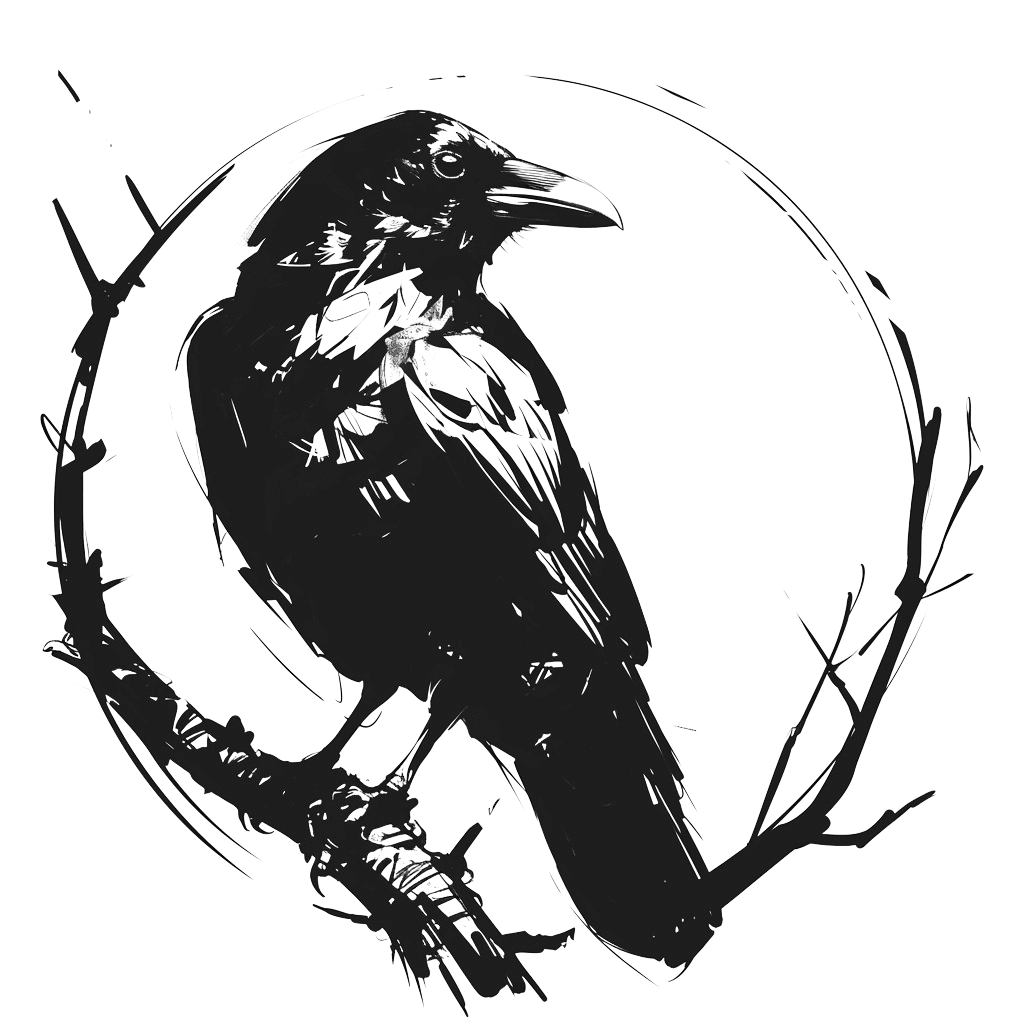The prototype of the movie "Curse", the bizarre death of a Taiwanese teenager
At the beginning of this year, a thriller titled "The Curse" was released in Taiwan. Few people know that this movie, which could scare the faint-hearted into sleepless nights, was actually adapted from a real incident that occurred in Taiwan in 2005.
In fact, the incident itself was not scary, but was rendered extremely terrifying by the film. Additionally, to this day, there are still some doubts in the incident that have not been confirmed by the police, which has shrouded the event in a so-called "supernatural" hue, thus maintaining a high level of interest in it to this day.
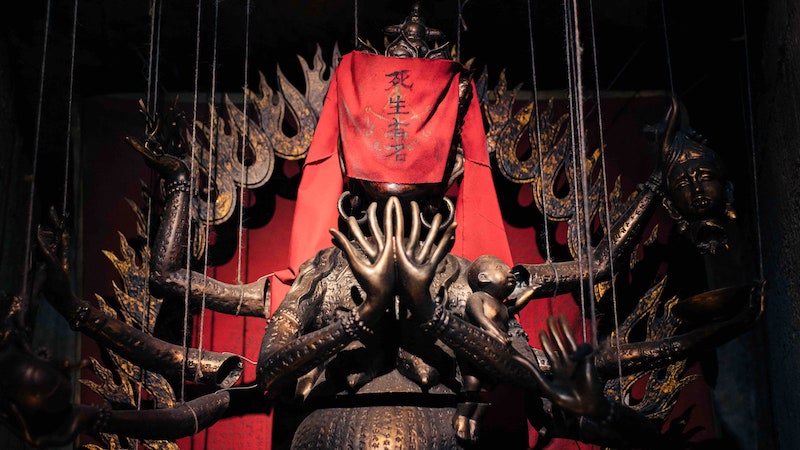
The Great Black Buddha Mother from The movie 'The Curse'
Of course, I am personally quite curious about this matter, so I have collected reports from all over the island and sorted out the ins and outs of the matter, including the details. Today, I have specially written it down to tell everyone about this bizarre incident that shocked the whole of Taiwan.
Stand firm, don't fall down!
a bizarre crime scene
April 13, 2005, was an ordinary day, but for the police in Kaohsiung City, Taiwan Province, it was anything but ordinary. That afternoon, they received a peculiar report.
The reporting party was Kaohsiung Medical University.
According to the informant, the hospital admitted a "female patient" on April 11th. The accompanying family members claimed that she was not yet dead and asked the hospital to help resuscitate her. Without much thought, the hospital immediately arranged for the resuscitation.
Soon after, upon a detailed examination by the doctors, it was discovered that the patient was nearly dead. Out of humanitarianism, the doctors still tried their best to resuscitate her, but ultimately, it was to no avail, and the patient died. The cause of death: multiple organ failure.
Cases of unsuccessful resuscitation are not uncommon in hospitals, so the hospital prepared to notify the family members who brought her in. However, a search throughout the hospital revealed no sign of the family. With no other option, the hospital had to temporarily store the body, waiting for the family to make contact proactively.

Kaohsiung Medical University, Taiwan Province
After waiting in vain for two days with no one coming forward to claim the body, the hospital began to panic, especially since the female patient had been brought in covered with wounds. Suspecting foul play, they reported the case to the Gushan Police Station in Kaohsiung.
The patient, named , was a 28-year-old local from Kaohsiung. She had been running a bento shop in Taipei with her boyfriend, and her background was clear with no anomalies.
Upon initial examination, the police found Wu's body covered with bruises and burns, and her mouth and respiratory tract were filled with feces, a sight too gruesome to bear.
The injuries on Wu's body indicated that she had suffered extraordinary abuse before her death, leading the Kaohsiung police to believe this was a rare case of torture and murder.
Following the murder case, the Kaohsiung police immediately dispatched officers to search Wu's family home in Kaohsiung. This search would haunt the participating officers, becoming an indelible nightmare.
Upon arriving at Wu's family the officers were greeted by an overwhelming stench that nearly made them vomit, making them wonder how anyone could tolerate living in such conditions.
The officers, fighting back disgust, stormed into the house only to find it deserted, with all of Wu's family members missing. A thorough search of the room led to more vomiting, as they discovered that all doors, windows, and walls were smeared with feces, explaining the unbearable stink.
Further investigation revealed bowls on the table with remnants of unfinished talisman water, and the room's arrangement was bizarre and inexplicable, with strange talismans drawn all over the walls and black clothes and cloth hanging on the balcony, as if a peculiar had taken place there.
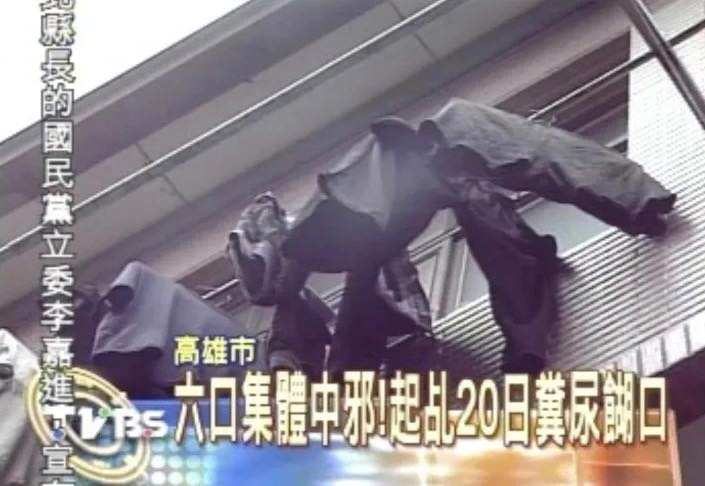
The media on the island captured images of the Wu family's balcony, draped with black clothes and cloth.
What exactly was this family up to?
The police officers on the scene were baffled and felt a chill in their hearts. The mysterious death, the eerie room setup, and the disappearance of the entire Wu family all seemed like something straight out of a thriller movie.
The investigation had become increasingly convoluted.
What happened to Wu Jin Nu during her lifetime?
Who brought her to the hospital ?
Why are all her family missing ?
These bewildering questions added a layer of mystery to the entire incident.
In the following days, somehow the news leaked, and the local media swarmed to the Wu family's traditional Taiwanese house, surrounding it completely. Meanwhile, the police began their search for the whereabouts of the other Wu family members. It was clear that only by finding the missing Wu family could the mysterious cause of Wu Jin-nu's sudden death be revealed.
the police and "Artifacts”
According to the investigation by the Kaohsiung police, the Wu family consisted of six members.
The father, Wu Wu-yun, and the mother, Cai Yue-qing, had three daughters and one son.
The eldest daughter, Wu Jin-nu, as mentioned earlier, had been running a bento shop in Taipei for a long time. The second daughter, Wu Mei-hong, was a nurse at a local hospital. The youngest sister, Wu Mei-yi, was still in university, and finally, there was a younger brother, Wu Wang-yuan.
Each of these six individuals had a clean background and were considered upright citizens. The family lived in a three-story traditional Taiwanese house on Yumin Street in the Gushan District of Kaohsiung. Wu Wu-yun's parents lived on the first floor, Wu Wu-yun's third brother's family lived on the second floor, and the family of six lived on the third floor.
A family as ordinary as any other.
In mid-April, the Kaohsiung police finally located the whereabouts of the other five members of the Wu family. These individuals had not met with any mishap but had collectively fled to Tainan to seek refuge with relatives.
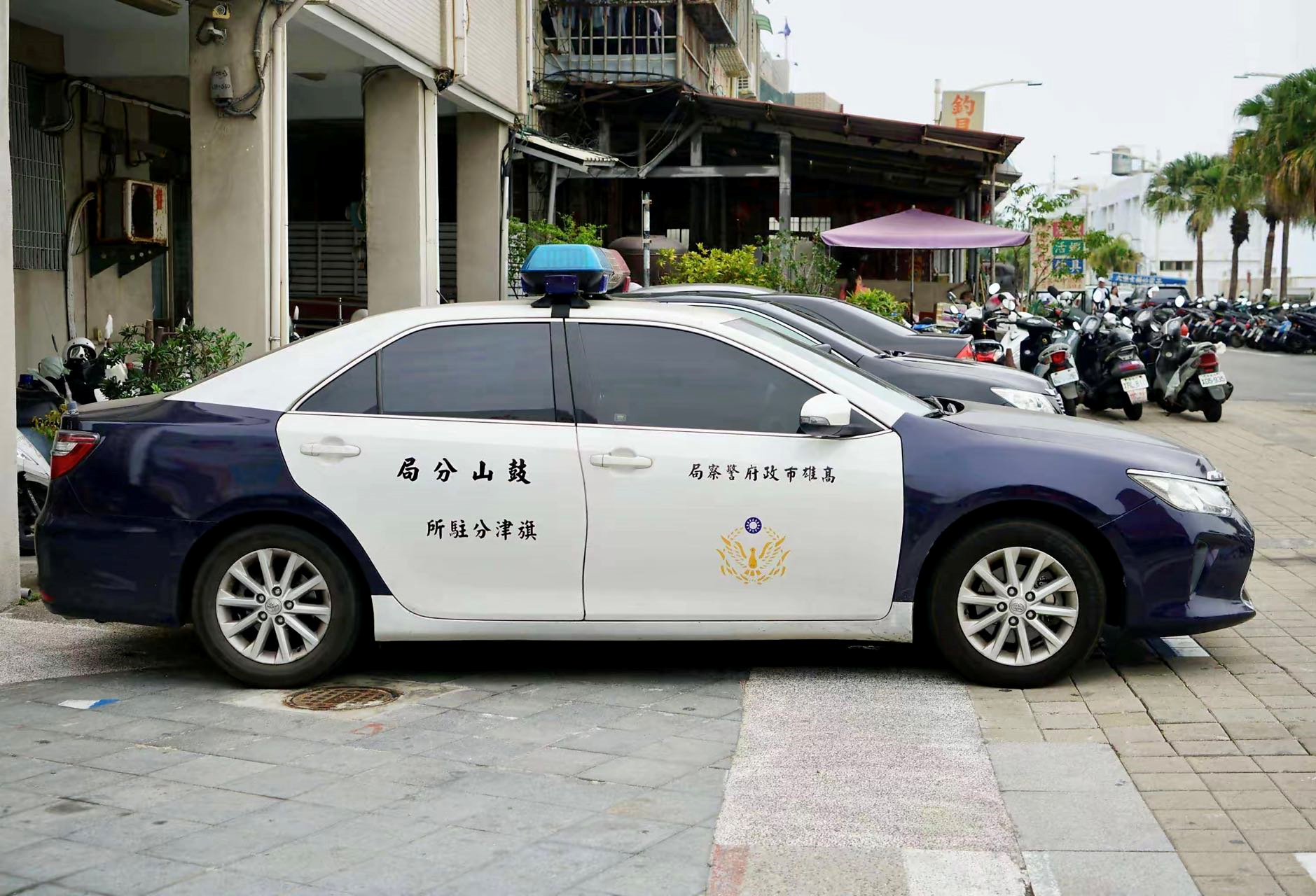
Kaohsiung Gushan police
The Kaohsiung police immediately dispatched officers to detain these five individuals and began interrogation.
Unexpectedly, the interrogation faced difficulties from the start. After being brought in, the five members of the Wu family appeared extremely fearful and refused to speak regardless of how the police questioned them. The police sensed that the Wu family might be afraid of something and asked if they had been threatened.
With the conversation reaching this point, the Wu family could no longer hide the truth and hesitantly revealed the reason, claiming they feared that speaking about the incident would attract the "evil spirit" to them again.
Evil spirit?
The investigating officers were greatly surprised and wanted to ask further questions, but the Wu family members refused to speak any more.
The police were frustrated with these stubborn individuals.
Despite the frustration, the case had to be solved, and the Wu family's situation had already caused a media frenzy with all sorts of stories circulating. Under pressure from all sides, the Kaohsiung police became desperate and resorted to a laughable "ingenious tactic" — summoning a "divine instrument"!
The "divine instrument" brought in by the police was called the "Emperor's Ruler", a peach wood talisman carved and consecrated at noon on the Dragon Boat Festival, said to have the power to suppress evil and ward off demons.
The local media, already tracking the case, went into a frenzy upon hearing that the police had summoned a "divine instrument". They reported extensively, and the public was also excited, eagerly anticipating the so-called "demon-quelling by the divine instrument".
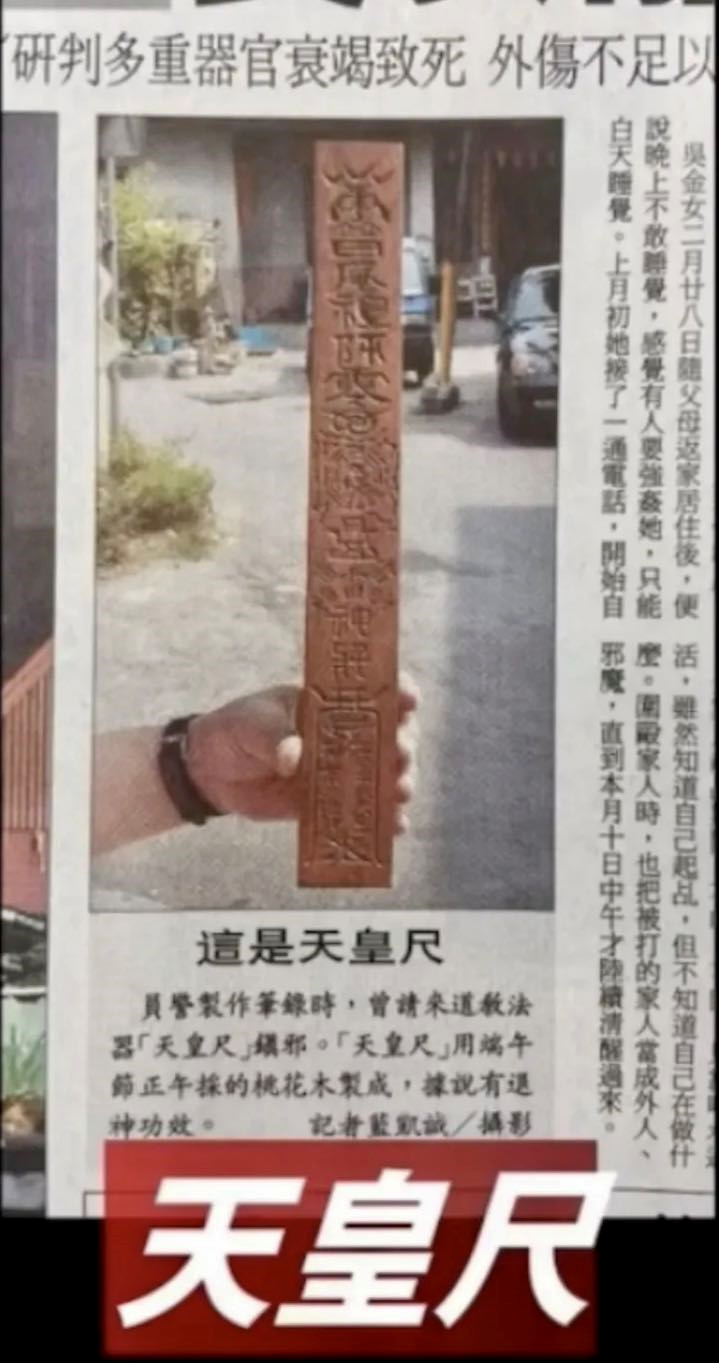
The Emperor ruler found by the police
What might seem like an absurdity to us. There's no helping it; this is the local custom on the island, where feudal superstitious activities have long been prevalent in Taiwan, among officials and the public alike.
After the police brought in the "Emperor's Ruler," the Wu family members indeed gained courage, and the interrogation was finally able to proceed smoothly. With the Wu family's testimony, the circumstances of Wu Jin-nu's death gradually came to light.
Spells
Here is the detailed account of the Wu family's experience, as compiled from various media reports:
Wu Jin-nu herself originally ran a bento shop with her boyfriend in Taipei, leading a peaceful life.
In late February 2005, the Wu family's third daughter, Wu Mei-yi, suddenly told her family that she was possessed by "San Tai Zi", and claimed that her elder sister Wu Jin-nu was in danger. She urged her parents, Mr. and Mrs. Wu Wu-yun, to bring their eldest daughter home quickly, or else her life might be at risk.
"San Tai Zi", also known as"Nezha", is a popular figure in Chinese mythology, known for his fiery temper and rebellious spirit. He is often depicted as a child with three heads and six arms, wielding magical weapons. Nezha is celebrated for his protection against evil and his loyalty to his family and friends.
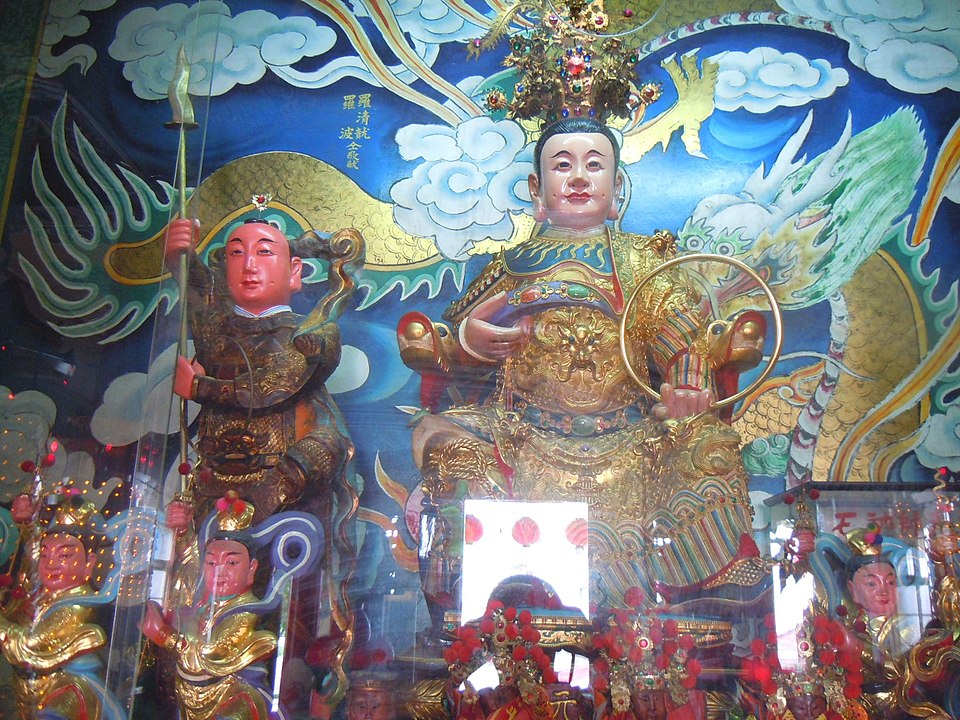
Character image of Nezha
If a normal family heard their daughter speak like this, they would typically rush to send her to a psychiatric hospital for early treatment. Unfortunately, the entire Wu family was deeply poisoned by feudal superstition. Upon hearing Wu Mei-yi's words, her parents, Mr. and Mrs. Wu Wu-yun, not only refrained from criticizing and educating their daughter but instead believed her without doubt.
Mrs. Cai Yue-qing immediately called Wu Jin-nu to inform her of the situation, and Wu Jin-nu was terrified upon hearing the news, proving the saying that 'birds of a feather flock together.' After the call, Mr. and Mrs. Wu Wu-yun were ultimately concerned for their daughter's safety, so they traveled overnight to Taipei, ready to personally bring Wu Jin-nu back home.
On February 28th, Wu Jin-nu entrusted the shop to her boyfriend and followed her parents back to Kaohsiung.
That's when the tragedy began.
In the eyes of the Wu family, Wu Mei-yi's words were a "divine warning", a "blessing" given by the gods after years of devout worship. Therefore, from Mr. and Mrs. Wu Wu-yun to Wu Jin-nu herself, everyone took this "warning" very seriously.
After returning home, Wu Jin-nu was extremely frightened. As the old saying goes, 'What one thinks during the day, one dreams of at night,' and on the night she returned home, Wu Jin-nu had a dream.
She dreamt that she was assaulted by a man, which intensified her fear.
On March 2nd, Wu Jin-nu told her parents that she too was possessed by a "deity", claiming it was the bodhisattva Guanyin.
Subsequently, Wu Jin-nu's behavior became increasingly strange. For example, she would slap her own face with her hands, scratch her face with her fingernails, or suddenly act crazed and throw herself against the corner of a wall. Clearly, Wu Jin-nu's mental state was beginning to deteriorate.
The Wu family was both scared and troubled by Wu Jin-nu's behavior. However, at that time, they did not consider sending her to a psychiatric hospital. Instead, following the suggestion of their third daughter, Wu Mei-yi, they planned to take the whole family to the local "Sheng Ning Palace" to seek a ritual to "calm the shock".
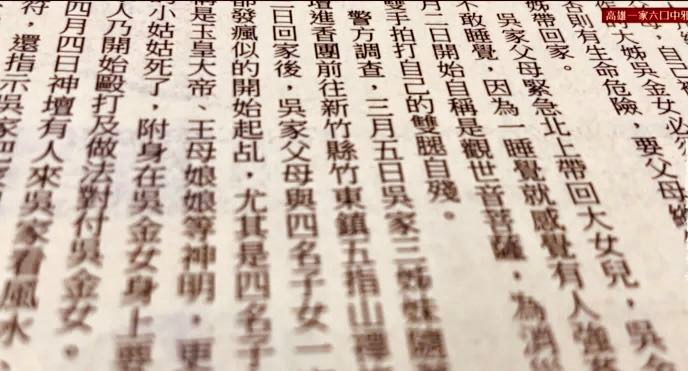
Screenshots of Wu's family telling police what happened
The Wu family quickly arrived at "Sheng Ning Palace," where, after examining Wu Jin-nu, the temple's master told them that her condition appeared to be a case of "possession," and that their powers were insufficient to perform an "exorcism." The Wu family, terrified, urgently pleaded with the master for guidance.
Seeing their state, the master immediately directed the Wu family to seek a temple on Wuzhi Mountain in Hsinchu, without elaborating further.
Holding the address given by the master as if it were a treasure, the family set out.
On March 5th, they arrived at the temple and spent the next month there in "spiritual retreat." The temple's master instructed them that the details of the "retreat" must not be disclosed, so even when later questioned by the police, the Wu family remained tight-lipped about that month's "retreat."
On April 3rd, after a month-long "retreat," the family breathed a sigh of relief and left Hsinchu to return to Kaohsiung.
The Wu family thought that after the "master's" intervention, everything would be fine. But little did they know, returning to Kaohsiung would mark the beginning of a nightmare for the entire family...
the death of Wu Jin Nu
On the night they returned home, Wu Wu-yun claimed to be possessed by the "Jade Emperor", followed by Cai Yue-qing who said she was possessed by the "Queen Mother of the West". The second daughter, Wu Mei-hong, was supposedly possessed by the "Seven Fairies", and the younger brother, Wu Wang-yuan, claimed to be possessed by "Ji Gong".
Indeed, it seemed as though the entire heavenly court had descended upon the Wu household.
In the time that followed, the Wu family began to collectively lose their sanity, shouting and screaming, sometimes even harming each other.
The commotion was too much for Wu Wu-yun's parents and his third brother's family living downstairs. They frequently went upstairs to check on them, only to find the family acting as if they were mad, stabbing each other with incense sticks and smearing their bodies with ointment.
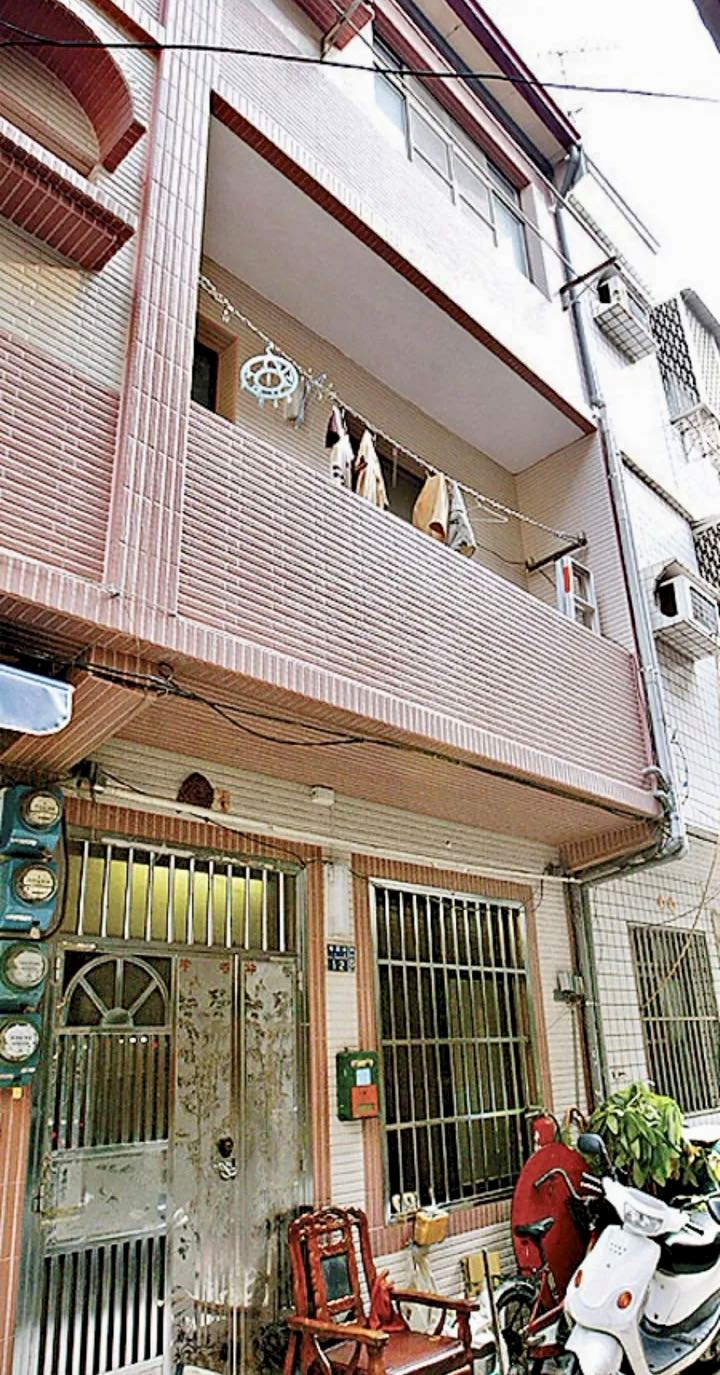
Wu's family lived on the third floor
On April 4th, the Wu family, reeking and desperate, returned to "Sheng Ning Palace" to ask the temple's master for an exorcism. The master, unable to help, followed them back to their traditional Taiwanese house, where the various talismans on the walls and the strange arrangements in the home were made under his "guidance."
After the master left, the family began to "exorcise" each other, which involved a rather crude method — beating each other with sticks.
According to the Wu family, they did this in an attempt to drive away the "evil spirits" from their bodies.
In the days that followed, the six members of the Wu family continued to beat each other daily, eating ointment when hungry and drinking talisman water when thirsty, completely losing their sanity.
This continued until April 9th, when the second daughter, Wu Mei-hong, went to call her elder sister, Wu Jin-nu, for "dinner." After shouting for a long time with no response, she opened the door to find Wu Jin-nu lying on the bed, foaming at the mouth and barely alive.
After a month of inhuman torment, anyone would have been overwhelmed, especially a frail woman like Wu Jin-nu. Wu Mei-hong, a nurse by profession, was shocked but quickly performed cardiopulmonary resuscitation on her sister.
If Wu Jin-nu had been taken to the hospital promptly at that time, she might have been saved. However, the Wu family, with their unusual way of thinking, not only did not take her to the hospital but also sat down to hold a family meeting.
During the meeting, the family discussed Wu Jin-nu's condition. Without going into specifics, the conclusion they reached was that Wu Jin-nu was not dying but experiencing soul detachment, and that if she could hold on, the "evil spirit" would leave her.
All five family members firmly believed that Wu Jin-nu would recover on her own.
Naturally, this discussion led to corresponding results. Two days later, on April 11th, Wu Jin-nu's body began to turn black, and only then did the entire Wu family realize the severity of the situation. That afternoon, they took Wu Jin-nu to Kaohsiung Medical University, leading to the events described at the beginning of this narrative.
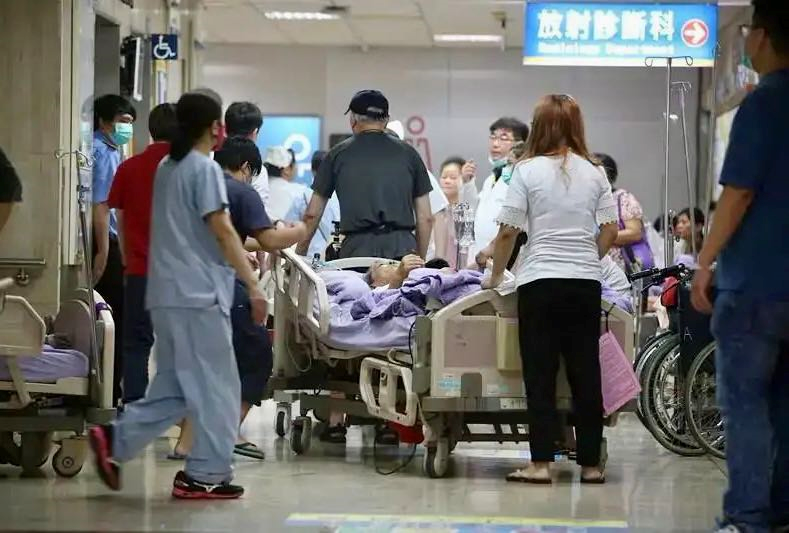
Logically, after Wu Jin-nu was taken to the hospital, her family, as relatives, should have stayed to await the results of the resuscitation. However, the Wu family thought differently. After discussion, they unanimously agreed to leave Wu Jin-nu at the hospital, believing that it was not Wu Jin-nu who had died, but merely the "evil spirit" that had possessed her.
Therefore, the family decided to abandon Wu Jin-nu at the hospital and fled to Tainan to "escape the disaster." As they left, they fantasized that Wu Jin-nu would be resurrected in a few days and come back to life as their family member...
The above is the cause and effect of the death of Wu Jin-nu. However, it should be noted that since Wu Jin-nu has passed away, this entire account is solely from the Wu family's perspective, and how much of it is true is up to individual judgment.
several questions in the Wu Jin Nu incident
The testimony provided by the Wu family was indeed bizarre and full of superstitious details, which naturally led the police to be skeptical. However, in the absence of concrete evidence to prove otherwise, the authorities had no choice but to charge the five members of the Wu family with the crime of "abandonment leading to death." This charge reflects the legal responsibility of the family members for failing to provide necessary care or seek timely medical attention for Wu Jin-nu, which ultimately resulted in her tragic demise.
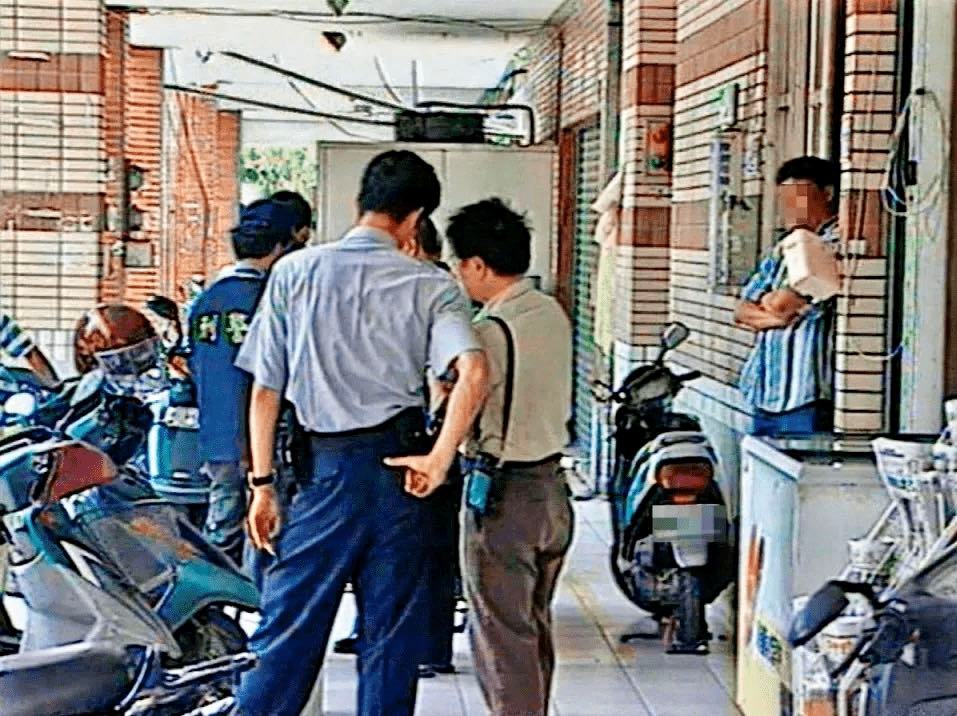
Kaohsiung police investigate the floor below Wu's home
The case of Wu Jin-nu's death indeed presents a complex and mysterious narrative, with many elements that seem to defy logical explanation. The lack of concrete evidence made it difficult for the authorities to convict the Wu family members on the charge of "abandonment leading to death," especially since the cause of death was determined to be "organ failure." Consequently, the court acquitted the Wu family.
The incident stirred considerable controversy and speculation within the island community, raising questions that remain topics of discussion to this day. It's important to recognize that the notion of being "possessed" is a one-sided claim from the Wu family and lacks scientific basis. Therefore, the case should not be associated with the supernatural.
As for the true nature of the events, several theories have been proposed:
- Murder Theory
There are two significant doubts regarding Wu Jin-nu's death. First, out of the six family members, why was Wu Jin-nu, the only one called back from another city, the one to suffer this fate? Second, there are suspicions surrounding the circumstances of her death. As mentioned, Wu Jin-nu was near death when brought to the hospital, and her body was covered in wounds.
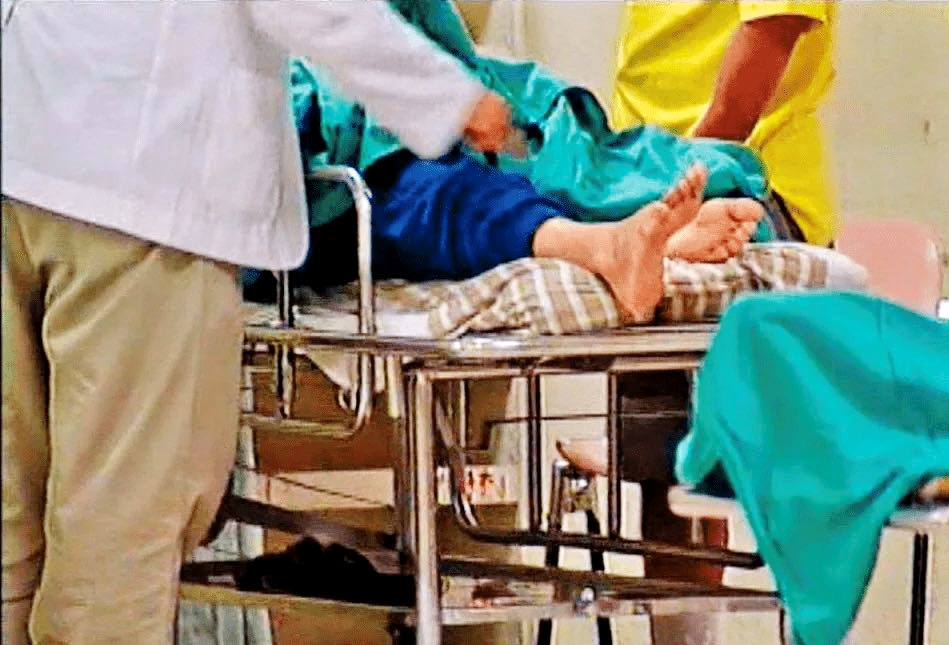
Wu Jin Nu when she was sent to the hospital
The Wu family's account of the events leading to Wu Jin-nu's death is indeed peculiar and steeped in superstitious beliefs. Their claim that the wounds were self-inflicted as part of an exorcism, and their belief that it was not Wu Jin-nu but an evil spirit that died, seem to be attempts to deflect suspicion from themselves by invoking supernatural explanations.
The speculation that Wu Jin-nu may have been murdered is just that—speculation, as there is no evidence to support this claim, nor is there a clear motive.
The second theory, "collective delusional disorder," is a recognized psychological condition where a group of individuals, often in close association, develop shared beliefs or delusions, typically triggered by stress or other psychological factors. This theory suggests that the Wu family's collective mental breakdown could be a manifestation of such a disorder, possibly exacerbated by their closed family environment and long-standing superstitious beliefs.
This explanation aligns with known cases of "collective delusional disorder" and offers a scientific and plausible interpretation of the events that tragically led to Wu Jin-nu's death.
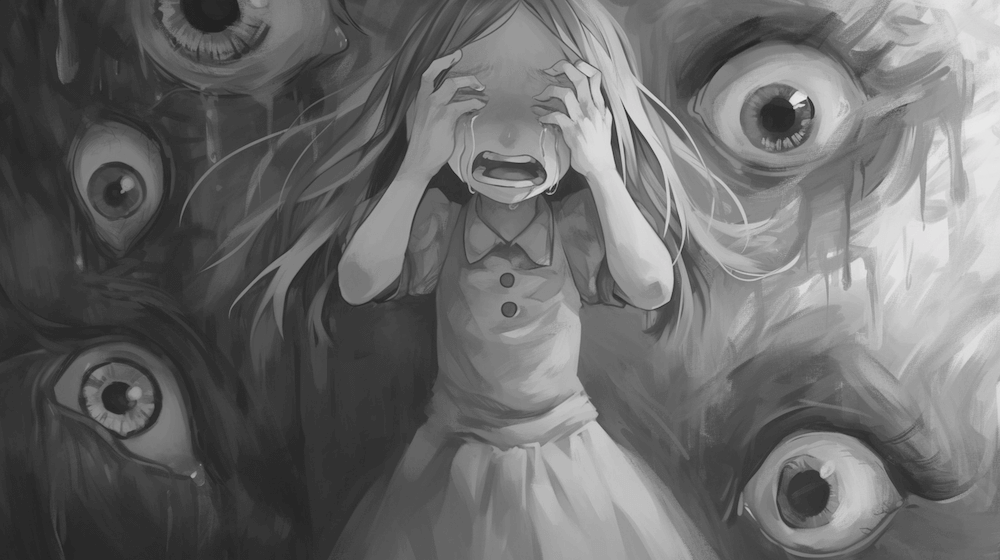
The third theory suggests the involvement of a cult within the island, which could have influenced the Wu family's beliefs and actions. The sudden claim of possession by "San Tai Zi" by Wu Mei-yi, the third daughter, after attending a religious event, raises questions about the nature of the event and the teachings she was exposed to.
Given the variety of beliefs present on the island, some of which may be considered cults by mainstream standards, it's plausible that the Wu family's tragedy could have been triggered by such an influence. However, without concrete evidence or a clear understanding of the specific circumstances, this remains a theory.
The notion of being "possessed" or "cursed" is deeply rooted in superstition and lacks empirical support. Therefore, while the Wu family's account is the only narrative available, the true facts of the case remain known only to them.
